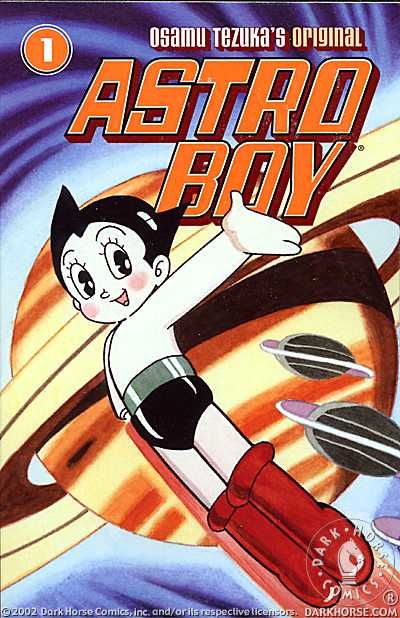Comics and the internet have been getting along pretty well in the U.S., as even a cursory glance at this blog will show, but in Japan, not so much.
In a piece for the Japanese newspaper Daily Yomiuri, cultural observer Roland Kelts laments the disconnect between American fans and Japanese publishers, who don't seem to be aware of each other at all.
Quite a few industry producers and publishers still maintain Japanese-only Web presences, but that hardly matters. In either language, most of the industry's online offerings are amateurish, hard to navigate, and worst of all, dull—just the opposite of their vaunted products.
The problem with this approach is that the Japanese market is shrinking and overseas customers are more important than ever before, yet no one is reaching out to them. The only company Kelts sees as actually "getting it" is Crunchyroll, which started as a pirate anime site and then went legit.
If that seems odd in a society that is so technologically advanced, read Kai-Ming Cha's comments on the Japanese resistance to digitization and e-books: They view hardware as separate from software (whereas the iPad, for instance, brings them together), and they also pay a lot of attention to process and craft, which are notably missing from e-books.
Japan is a process oriented country. There is a process to everything: it takes three years to properly learn how to cut and make sushi; three hours to properly dress in a kimono. That attention to craft and attention to detail, meticulous and studied, carries over to gadgetry and physical, handheld devices like books.
...
The problem for Japan – and for all publishing – is that e-books and reading devices like the Kindle completely flatten the content, essentially devaluing it.
Kai-Ming thinks that the Japanese will adjust and find ways to add value to the content, and they probably will. In fact, cell phone manga is already a fast-growing channel over there.
Having spent a fair amount of time clicking around Japanese publishers' websites, though, I can attest that digital content is sorely lacking. I don't speak Japanese, but the cues are fairly obvious, and they all lead me to exactly the same thing: Yet another shot of the book cover and some text that I assume is a catalog description. Japanese publishers seldom post previews, and when they do, they tend to use some reader software that only works with Internet Explorer, thus locking out a substantial percentage of their audience (including me).
The other thing that is missing is any real contact with creators and publishers. Some creators do interviews and have little blogs of their own, but they aren't very aggressive or informative; their comments tend to be generic, usually along the lines of "I'm really not very good but I will work hard to try to please my readers." They don't have the sort of robust dialogue we have here, with creators promoting their work on their LiveJournals or editors doing interviews with news sites. Perhaps that sort of thing is going on in Japan, but if it is, it isn't making it over here. As a result, it feels like the creators are missing from the picture, and "cool Japan" is the ultimate cool, a faceless corporation that hands out the comics and then retracts its arm and disappears into the sky.


